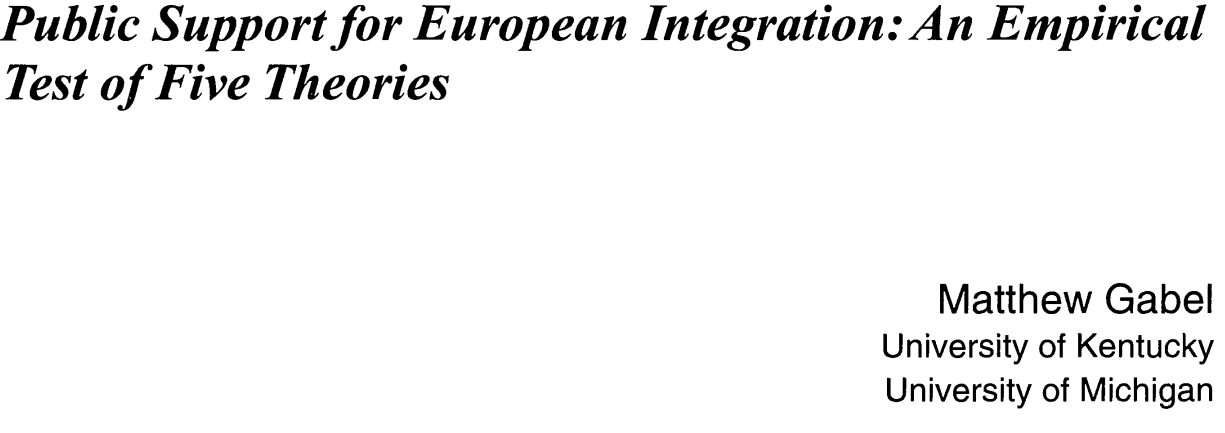Inhalt
Euroskeptizisimus ist ein fast schon klassisches Thema der Politischen Soziologie, das durch den Aufstieg populistischer Parteien und die kleineren und größeren Krisen der europäischen Integration in den letzten 15 Jahren enorm an Bedeutung gewonnen hat. Im Seminar beschäftigen wir uns mit der Bedeutung außenpolitischer Einstellungen für die praktische Politik generell und lesen gemeinsam einige klassische und viele aktuelle Artikel und Kapitel zu den Themen Populismus und Euroskeptizismus.
Ziele
Am Ende des Seminars …
- Haben Sie einen Überblick über ein dynamisches Forschungsfeld
- Verfügen Sie über ein grundlegendes Verständnis der Bedeutung außenpolitischer und EU-bezogener Einstellungen für die Politik
- Sind Sie in der Lage, die aktuellen politischen Diskussionen wissenschaftlich einzuordnen
Weitere Informationen
… finden Sie in Moodle.
Inhalt
Seminarplan (PDF)
Ablauf
Datum | Thema | Basisliteratur |
|---|---|---|
26.10.2022 | Einführung | |
02.11.2022 | Struktur außenpolitischer Einstellungen | Gravelle, Reifler, and Scotto 2017 |
09.11.2022 | Persönlichkeit und außenpolitische Einstellungen | Rathbun et al. 2016 |
16.11.2022 | Bedrohung, Angst, Wut und Russland | Kupatadze and Zeitzoff 2019 |
23.11.2022 | Öffentliche Meinung und internationale Organisationen | De Vries, Hobolt, and Walter 2021 |
30.11.2022 | EU support und persönlicher Nutzen | Gabel 1998 |
07.12.2022 | EU support und cultural threat | McLaren 2002 |
14.12.2022 | Populismus als individuelle Einstellung | Akkerman, Mudde, and Zaslove 2014 |
21.12.2022 | Euroskeptizismus und Rechtswahl | McDonnell and Werner 2018; (Werts, Scheepers, and Lubbers 2012) |
11.01.2023 | Liberaldemokratische Einstellungen und Euroskeptizismus | Van der Brug et al. 2021 |
18.01.2023 | Generationale Effekte, Krisen und EU-Unterstützung | Lauterbach and Vries 2020 |
25.01.2023 | Ein positiver Brexit-Effekt? | Hobolt et al. 2021 |
01.02.2023 | Wer würde in CEE die EU verlassen? | Gherghina and Tap 2022 |
08.02.2023 | Abschlussdiskussion |
Literatur
Brug, Wouter van der, Sebastian Adrian Popa, Sara B Hobolt, and Hermann Schmitt. 2021. “Illiberal Democratic Attitudes and Support for the Eu.” Politics 41 (4): 537–61. doi:10.1177/0263395720975970.
De Vries, Catherine E., Sara B. Hobolt, and Stefanie Walter. 2021. “Politicizing International Cooperation: The Mass Public, Political Entrepreneurs, and Political Opportunity Structures.” International Organization 75 (2): 306–32. doi:10.1017/s0020818320000491.
Gabel, Matthew. 1998. “Public Support for European Integration. an Empirical Test of Five Theories.” Journal of Politics 60: 333–54.
Gherghina, Sergiu, and Paul Tap. 2022. “Conservatism, Social Isolation and Political Context: Why East Europeans Would Leave the Eu in Exit Referendums.” International Political Science Review online first. doi:10.1177/01925121211061453.
Gravelle, Timothy B., Jason Reifler, and Thomas J. Scotto. 2017. “The Structure of Foreign Policy Attitudes in Transatlantic Perspective. Comparing the United States, United Kingdom, France and Germany.” European Journal of Political Research 56 (4): 757–76. doi:10.1111/1475-6765.12197.
Hobolt, Sara B., Sebastian Adrian Popa, Wouter van der Brug, and Hermann Schmitt. 2021. “The Brexit Deterrent? How Member State Exit Shapes Public Support for the European Union.” European Union Politics 23 (1): 100–119. doi:10.1177/14651165211032766.
Kupatadze, A., and T. Zeitzoff. 2019. “In the Shadow of Conflict: How Emotions, Threat Perceptions and Victimization Influence Foreign Policy Attitudes.” British Journal of Political Science 51 (1): 181–202. doi:10.1017/s0007123418000479.
Lauterbach, Fabian, and Catherine E. De Vries. 2020. “Europe Belongs to the Young? Generational Differences in Public Opinion Towards the European Union During the Eurozone Crisis.” Journal of European Public Policy 27 (2): 168–87. doi:10.1080/13501763.2019.1701533.
McDonnell, Duncan, and Annika Werner. 2018. “Differently Eurosceptic: Radical Right Populist Parties and Their Supporters.” Journal of European Public Policy, 1–18. doi:10.1080/13501763.2018.1561743.
McLaren, Lauren M. 2002. “Public Support for the European Union: Cost/Benefit Analysis or Perceived Cultural Threat.” The Journal of Politics 64: 551–66.
Rathbun, Brian C., Joshua D. Kertzer, Jason Reifler, Paul Goren, and Thomas J. Scotto. 2016. “Taking Foreign Policy Personally: Personal Values and Foreign Policy Attitudes.” International Studies Quarterly 60 (1): 124–37. doi:10.1093/isq/sqv012.
Werts, Han, Peer Scheepers, and Marcel Lubbers. 2012. “Euro-Scepticism and Radical Right-Wing Voting in Europe, 2002-2008: Social Cleavages, Socio-Political Attitudes and Contextual Characteristics Determining Voting for the Radical Right.” European Union Politics 14 (2): 183–205. doi:10.1177/1465116512469287.
Fazit/Abschlussdiskussion
… am Ende des Semesters
